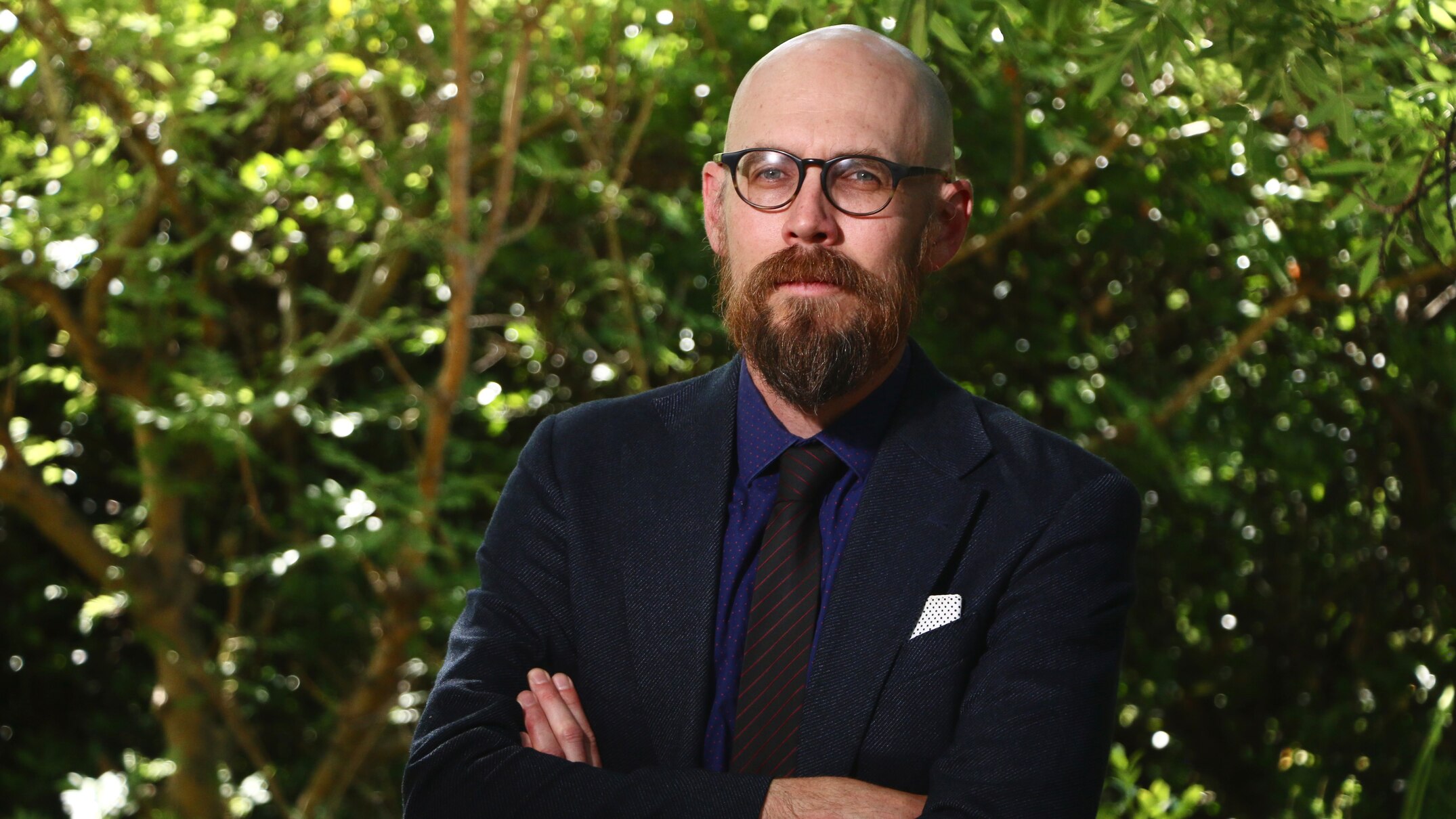
Professor Nicholas Biddle co-authored a study of more than 4,200 Australians on the Voice referendum. (ABC News: Nicholas Haggarty)
In October, most Australians voted down a constitutionally enshrined Indigenous Voice to Parliament — but the binary nature of the referendum question has meant the reasons behind the votes are a mystery.
That prompted the Australian National University (ANU) to survey more than 4,200 voters to help explain what happened.
Study co-author Professor Nicholas Biddle said the survey’s findings might “dispel some of the myths or narratives” that arose after the referendum result, as some people sought to “make assumptions about why people were voting the way they did”.
Professor Biddle said much of the survey’s results confirmed what researchers might have suspected.
But, there were a few surprises:
1. Defeat didn’t diminish reconciliation support
Professor Biddle said he was surprised at the “extent to which Australians were still likely to support the principles of the Voice”.
That’s despite every Australian jurisdiction, other than the ACT, rejecting it.
The survey found around 80 per cent of Australians believe the federal government should improve reconciliation and “undertake formal truth-telling processes”.
87 per cent of Yes voters think First Nations Australians should have a say in matters affecting them, which was hardly surprising, until researchers learned 76 per cent of No voters agreed.
“So, what that says to me is that the principles [of the Voice] are still well supported, but that it was the mechanism and some of the specifics about the Voice model which people did not say Yes to,” Professor Biddle explained.
2. Demographic gaps more like gulfs
Professor Biddle said “we always knew that younger Australians were more likely to vote Yes,” with more educated people also more inclined to support the Voice.
But, according to Professor Biddle, “it was the size of the gaps” that surprised researchers.
“About 20 per cent of those who had not completed year 12 voted Yes, compared to about 60 per cent who held a postgraduate degree.”
“And a three times difference is quite large,” he said
In contrast, the most narrow gap in the study was drawn from this statement:
“If Aboriginal and Torres Strait Islander people tried harder, they could be just as well off as non-Indigenous Australians.”
51 per cent of people surveyed agreed or strongly agreed.
“This is despite … 68 per cent agreeing or strongly agreeing that: Many Aboriginal and Torres Strait Islander Australians are disadvantaged today because of past race-based policies,” the researchers said.
3. Democracy manifests?
The third set of findings from the survey, which surprised Professor Biddle, was the extent to which some “attitudes have shifted”.
“There was a big drop, after the referendum, in the percentage of Australians who said they were satisfied or very satisfied with democracy in Australia.”
Professor Biddle said most respondents were still satisfied with Australian democracy but “the fact that it dropped over the referendum period shows that there has potentially been some kind of negative impact of the campaign and the outcome of the campaign”.
He said the survey included some questions that had also been put to respondents in a 2014 survey on Indigenous policies, which exposed any changes in views over time.
The questions revealed that Australians today are more likely to think that First Nations peoples are treated equally to other Australians and that recognising native title of Aboriginal and Torres Strait Islander people is unfair to other Australians.
Although support for those viewpoints had increased over the past decade, the respondents holding those attitudes continued to represent fewer than half of all those surveyed.
Who were the 4,200 people surveyed?
The ANU’s Social Research Centre runs online probability panels which are made up of people recruited to undertake surveys on a regular basis.
The centre calls prospective respondents or sends letters asking them to complete surveys.
“And we try really hard to have a representative and even spread across broad demographic, geographic and socioeconomic characteristics,” Professor Biddle said.
According to the centre, panellists are offered a “small incentive” for completing surveys, which they can choose to donate to a charity instead.
Professor Biddle said the Voice survey had been reweighted to represent the number of Yes and No voters who had turned out on October 14, meaning the survey’s respondents were a microcosm for how Australians had voted.
News Related-
High court unanimously ruled indefinite detention was unlawful while backing preventive regime
-
Cheika set for contract extension as another Wallabies head coaching candidate slips by
-
Analysis-West's de-risking starts to bite China's prospects
-
'Beyond a joke' Labor won't ensure PTSD protections: MP
-
Formula One season driver ratings: Lando Norris shines as Max Verstappen nears perfection
-
Catalina golfer Tony Riches scores Guinness World Record four holes in one on same hole
-
Florida coach Billy Napier fires assistants Sean Spencer, Corey Raymond with expected staff shakeup ahead
-
Rohingyan refugee NZYQ accidentally named in documents published by high court
-
Colorado loses commitments of 2 more high school recruits
-
Queensland Health issues urgent patient safety alert over national bacteria outbreak
-
Townsville Community Pantry 'distressed' by fruit, vegetable waste at Aldi supermarket
-
What Is The Beaver Moon And What Does It Mean For You?
-
Labor senator Pat Dodson to resign from politics due to health issues
-
Hamas releases 11 more hostages, as Israel agrees to extend ceasefire
